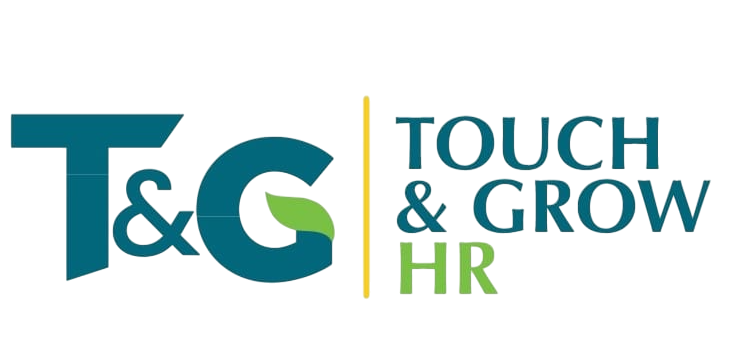In recent years, artificial intelligence (AI) has emerged as a transformative force across industries, and human resources (HR) is no exception. From streamlining recruitment to enhancing employee engagement, AI is revolutionizing how HR professionals work, making processes more efficient, data-driven, and human-centered. As organizations strive to adapt to a rapidly changing world, AI is becoming an indispensable tool for unlocking the full potential of their most valuable asset: their people. Here’s a closer look at how AI is reshaping human resources and what this means for the future of work.
1. Transforming Recruitment and Talent Acquisition
One of the most visible impacts of AI in HR is in recruitment. Traditionally, hiring managers sifted through countless resumes and applications, a time-consuming process prone to human bias. AI is changing this by automating and optimizing the talent acquisition pipeline.
AI-powered tools can scan resumes, assess candidate qualifications, and even predict which applicants are most likely to succeed in a role based on historical data. Chatbots and virtual assistants handle initial candidate interactions, answering questions, scheduling interviews, and providing a seamless experience. Machine learning algorithms also help identify diverse talent pools, reducing unconscious bias and ensuring fairer hiring practices.
For example, companies now use AI to analyze social media profiles, online portfolios, and professional networks to find passive candidates who might not have applied but are a perfect fit. This not only speeds up hiring but also improves the quality of hires, saving organizations time and money while building stronger teams.
2. Enhancing Employee Engagement and Retention
Keeping employees engaged and reducing turnover is a top priority for HR, and AI is proving to be a game-changer here too. By analyzing data from employee surveys, performance reviews, and even digital communication patterns, AI can identify signs of disengagement or burnout before they become serious issues.
AI-driven platforms can personalize employee experiences, offering tailored training programs, career development suggestions, and wellness resources. For instance, if an employee shows interest in leadership development, AI can recommend relevant courses or mentors. Predictive analytics can also flag employees at risk of leaving, allowing HR to intervene with retention strategies like flexible work arrangements or recognition programs.
Moreover, AI-powered chatbots provide 24/7 support for employee queries about benefits, policies, or payroll, freeing up HR teams to focus on strategic initiatives. This not only improves efficiency but also fosters a more supportive work environment.
3. Streamlining Administrative Tasks
HR departments are often bogged down by repetitive administrative tasks, from onboarding new hires to managing payroll and compliance. AI is automating these processes, allowing HR professionals to dedicate more time to strategic planning and employee development.
Onboarding, for example, can be a complex and overwhelming process for new employees. AI tools can guide new hires through paperwork, assign training modules, and even connect them with mentors or team members. This reduces the workload for HR staff and ensures a smoother, more welcoming experience for newcomers.
Similarly, AI can monitor compliance with labor laws and industry regulations, alerting HR to potential issues before they arise. This proactive approach minimizes risks and ensures organizations remain on the right side of legal and ethical standards.
4. Leveraging Data for Strategic Decision-Making
Data is at the heart of AI’s impact on HR. By analyzing vast amounts of information—from employee performance metrics to market trends—AI provides HR leaders with actionable insights to make informed decisions. Whether it’s forecasting future hiring needs, identifying skill gaps, or optimizing workforce planning, AI turns raw data into a strategic advantage.
For instance, AI can help HR predict which departments might face high turnover and suggest ways to address it, such as improving compensation or creating better career advancement opportunities. It can also analyze the ROI of training programs, helping organizations invest in initiatives that deliver the most value.
This data-driven approach empowers HR to align its strategies with broader business goals, making it a true partner in organizational success.
5. Addressing Ethical and Privacy Concerns
While the benefits of AI in HR are immense, it’s not without challenges. As AI becomes more integrated into HR processes, concerns about privacy, bias, and transparency have emerged. For example, if AI tools are trained on biased data, they might perpetuate inequalities in hiring or promotions.
To address this, organizations must ensure their AI systems are transparent, regularly audited, and designed with fairness in mind. HR leaders also need to communicate clearly with employees about how AI is used, reassuring them that technology is there to support, not replace, human judgment. Striking the right balance between innovation and ethics will be key to building trust and maximizing AI’s potential.
The Future of HR: A Human-AI Partnership
Far from replacing HR professionals, AI is enhancing their capabilities, allowing them to focus on what truly matters: building a positive workplace culture, fostering employee growth, and driving organizational success. The future of HR lies in a partnership between human intuition and AI’s analytical power.
As we move forward, AI will continue to evolve, offering even more sophisticated tools for HR. From virtual reality training programs to AI-driven sentiment analysis during meetings, the possibilities are endless. For organizations willing to embrace this change, the rewards include a more efficient, engaged, and adaptive workforce.
In conclusion, AI is reshaping human resources by automating routine tasks, providing deep insights, and enabling more personalized employee experiences. While challenges remain, the potential for AI to transform HR is undeniable. By harnessing this technology responsibly, organizations can create workplaces that are not only more productive but also more humane. The era of AI-powered HR is here, and it’s an exciting time for the future of work.

